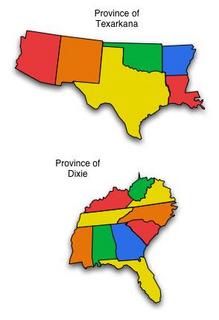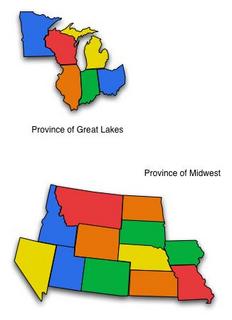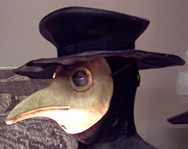If you want a really good laugh, be sure to point your browser to the (North) Korean News Service.
I have always loved a good bit of Communist propaganda, and this is some of the best!
8.22.2005
8.11.2005
Weird Science from Fascist Right-Wingers
This is a great article from AlterNet.com, about bizarre scientific claims from the wacky religious right!
Things like: abortion causes breast cancer and Terry Schiavo could have gotten better!
Well worth the read!
Things like: abortion causes breast cancer and Terry Schiavo could have gotten better!
Well worth the read!
8.08.2005
Very funny!
this is an Open Letter to the Kansas School Board about this "intelligent design" nonsense.
Yes, I said nonsense. Just like "creationism" is nonsense. "Intelligent design" is just a back-door way of introducing "creationsim."
But the letter is funny! Read it!
Yes, I said nonsense. Just like "creationism" is nonsense. "Intelligent design" is just a back-door way of introducing "creationsim."
But the letter is funny! Read it!
Reform of an (Im)Perfect Union
Like most people, I spend part of my free time considering various constitutional reforms. I think I have come up with a good idea.
Part of our divisive national debate is caused by the enormous amount of influence the federal government has over our lives, and rulings by the Supreme Court. Now, I don't have much of a problem with either of those issues, but many do. One way to reduce conflict in this nation I think is to institute a major reorganization at the federal and state levels. Here's my idea:
1. Lump the states into Provinces, and abolish the individual state legislatures in favor a provincial legislature. The names for the new provinces that I invented are:
*New England
*Dixie
*Texarkana
*Pacifica
*Great Lakes
*Midwest
*Overseas Territories (All US territorial holdings that are not states)
The Provincial legislatures would elect a Governor General, and a Deputy Governor General. Each state would continue to elect its own Governor. The benefit here is that each province would have a much larger budget to spread more evenly across the the whole of the province. The provinces would then be able to take over much of the federal government's responsibilities, and could enact laws that are appropriate for each province. For example, if the residents of Dixie wished to outlaw abortion, they could. If the residents of New England wanted to legalize abortion, they could. As much responsibility as possible should be devolved to the provincial level.
2. The Governors-General and their deputies would sit on the Provincial Council, that would replace the U.S. Senate.
3. The federal House of Representatives and the Provincial Legislatures would be elected under PROPORTIONAL REPRESENTATION. This means that any party that received more than 5% of the provincial vote would gain seats in the House and the provincial legislatures. This would help to break the Republi-crat monopoly. (see "Proportional Representation" entry in Wikipedia.) Members of the Provincial Legislatures could also serve in the Governor General's cabinet, and members of the Federal House could sit in the President's cabinet.
4. The President of the United States would continue to be elected by all Americans, with a modified electoral college that allowed states to split their electoral college votes as was the case earlier in American history. The Vice President of the United States would also be a member of the Provincial Council, and participate in its debates but not vote except in the case of a tie.
5. The federal government would be responsible for:
*Defense
*Homeland Security
*National healthcare
*Federal Reserve Bank & overall economic policy
*Foreign policy/relations
*United State military
*Interprovincial affairs
*Justice
*Environment
In this case, there would only be around 8 or 9 cabinet positions, allowing the elimination of the others.
6. The Supreme Court of the United States would continue to rule on FEDERAL legislation, as each province would have its own Provincial Supreme Court.
7. TERM LIMITS, TERM LIMITS, TERM LIMITS. Term limits for every elected official and member of the US and provincial Supreme Courts (perhaps an age limit, rather than a term limit for SC justices would be more appropriate.) The President should have a single 6 year term, and everyone else should have a 12 year limit total. This is vital to break the entrenched power of permentant politicians.
This is an imperfect solution. But I do belieive that by returning most power to the provinces and reducing the size of the federal government, things could be better. The only drawback may be a tendency toward "regionalism" which would have to be understood and combatted.
If you have any responses or better suggestions, please let me know! This is a topic that really interests me!!



Part of our divisive national debate is caused by the enormous amount of influence the federal government has over our lives, and rulings by the Supreme Court. Now, I don't have much of a problem with either of those issues, but many do. One way to reduce conflict in this nation I think is to institute a major reorganization at the federal and state levels. Here's my idea:
1. Lump the states into Provinces, and abolish the individual state legislatures in favor a provincial legislature. The names for the new provinces that I invented are:
*New England
*Dixie
*Texarkana
*Pacifica
*Great Lakes
*Midwest
*Overseas Territories (All US territorial holdings that are not states)
The Provincial legislatures would elect a Governor General, and a Deputy Governor General. Each state would continue to elect its own Governor. The benefit here is that each province would have a much larger budget to spread more evenly across the the whole of the province. The provinces would then be able to take over much of the federal government's responsibilities, and could enact laws that are appropriate for each province. For example, if the residents of Dixie wished to outlaw abortion, they could. If the residents of New England wanted to legalize abortion, they could. As much responsibility as possible should be devolved to the provincial level.
2. The Governors-General and their deputies would sit on the Provincial Council, that would replace the U.S. Senate.
3. The federal House of Representatives and the Provincial Legislatures would be elected under PROPORTIONAL REPRESENTATION. This means that any party that received more than 5% of the provincial vote would gain seats in the House and the provincial legislatures. This would help to break the Republi-crat monopoly. (see "Proportional Representation" entry in Wikipedia.) Members of the Provincial Legislatures could also serve in the Governor General's cabinet, and members of the Federal House could sit in the President's cabinet.
4. The President of the United States would continue to be elected by all Americans, with a modified electoral college that allowed states to split their electoral college votes as was the case earlier in American history. The Vice President of the United States would also be a member of the Provincial Council, and participate in its debates but not vote except in the case of a tie.
5. The federal government would be responsible for:
*Defense
*Homeland Security
*National healthcare
*Federal Reserve Bank & overall economic policy
*Foreign policy/relations
*United State military
*Interprovincial affairs
*Justice
*Environment
In this case, there would only be around 8 or 9 cabinet positions, allowing the elimination of the others.
6. The Supreme Court of the United States would continue to rule on FEDERAL legislation, as each province would have its own Provincial Supreme Court.
7. TERM LIMITS, TERM LIMITS, TERM LIMITS. Term limits for every elected official and member of the US and provincial Supreme Courts (perhaps an age limit, rather than a term limit for SC justices would be more appropriate.) The President should have a single 6 year term, and everyone else should have a 12 year limit total. This is vital to break the entrenched power of permentant politicians.
This is an imperfect solution. But I do belieive that by returning most power to the provinces and reducing the size of the federal government, things could be better. The only drawback may be a tendency toward "regionalism" which would have to be understood and combatted.
If you have any responses or better suggestions, please let me know! This is a topic that really interests me!!



Subscribe to:
Comments (Atom)
